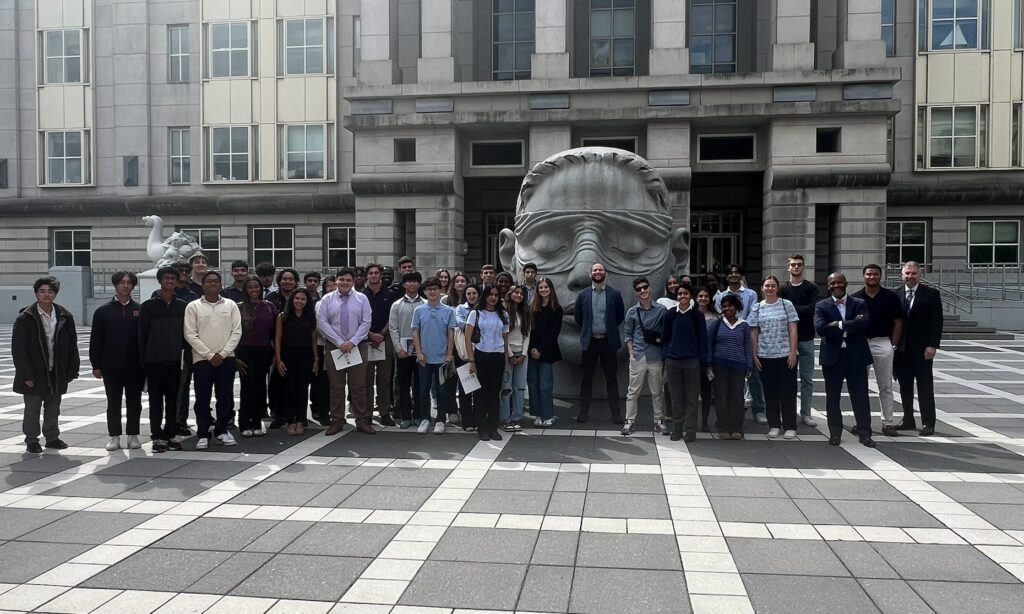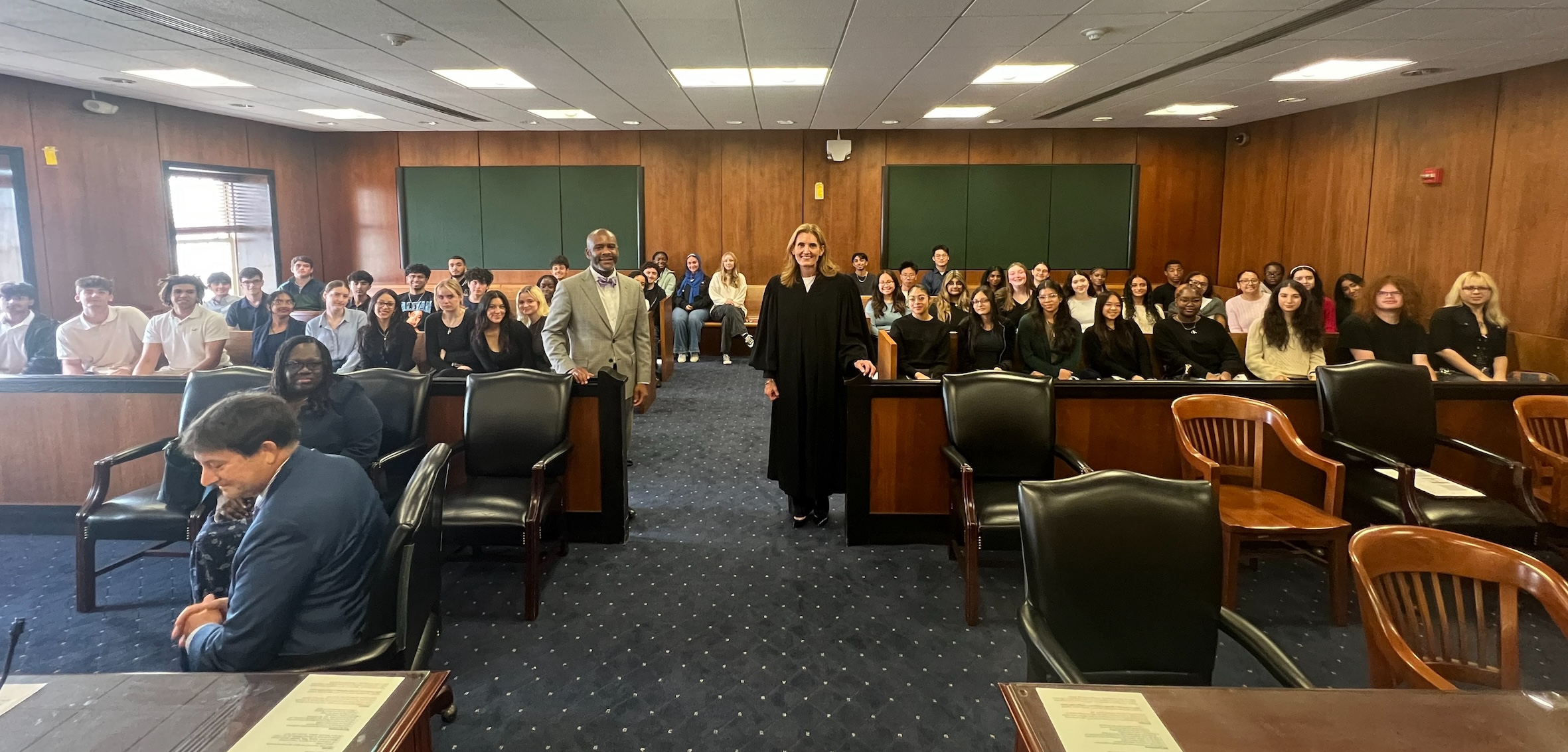What can court proceedings look like at the state and federal levels? Ask the students in Professor Douglas Cantor’s undergraduate Law and Politics classes, among the highest enrollment courses offered by the School of Arts and Sciences.
A few years ago, Professor Cantor, a faculty member in the Political Science Department at Rutgers University—New Brunswick, took a pedagogical risk. He wanted to facilitate learning experiences where his students could visit actual courts and apply the course material. One challenge loomed— his course enrolled hundreds of students—was this a feasible undertaking? Convinced of the value that such learning opportunities for his students, many of whom are pre-law, he forged ahead and coordinated the activities, integrating two visits to courts each semester as part of the course, one to a Middlesex County courthouse and another to a federal district courthouse in Newark.

At each of the sites, students watch court hearings and have opportunities to speak with judges and other court officials such as prosecutors and court interpreters. When they return to campus, they write and submit journal assignments on their experiences. Professor Cantor crafted these experiential learning activities as a Provost’s Teaching Fellow, an initiative focused on supporting instructors in course redesign. He describes the support received as a fellow and from his department as sources of encouragement. The students have also realized the value of these learning opportunities. When he surveyed them to better understand their experiences, he found that course satisfaction increased with the redesign, findings that he presented at the American Political Science Association annual meeting.
This semester is Professor Cantor’s third straight semester facilitating these significant learning experiences for students, making the course material come alive. The department is guaranteed to be running it for the next three semesters as well. If the trends in enrollment hold, he is on track to send the 1,000th student to the course in the fall.
Reflecting on enriching his course with these experiential learning activities, Professor Cantor recounts:
Sending roughly 650 students to court twice thus far has been a monumental undertaking over the last two years, but I never fathomed how positively impactful it would be on both the students and the class, and it has all been worth it. I get countless students in my classrooms who are entertaining the idea of a career in law. However, classrooms are not the only experiences that students should be basing major (and possibly expensive) career choices on. My main motivation for this program was to get students in environments where they could witness law firsthand while also talking to people with careers in law so they could make the best decisions for themselves for their long-term goals. And even if you are not interested in a career in law, getting to sit and experience different courthouses can provide community engagement with legal and political systems in ways they may have not experienced. It’s also fun getting students out of the classroom!
